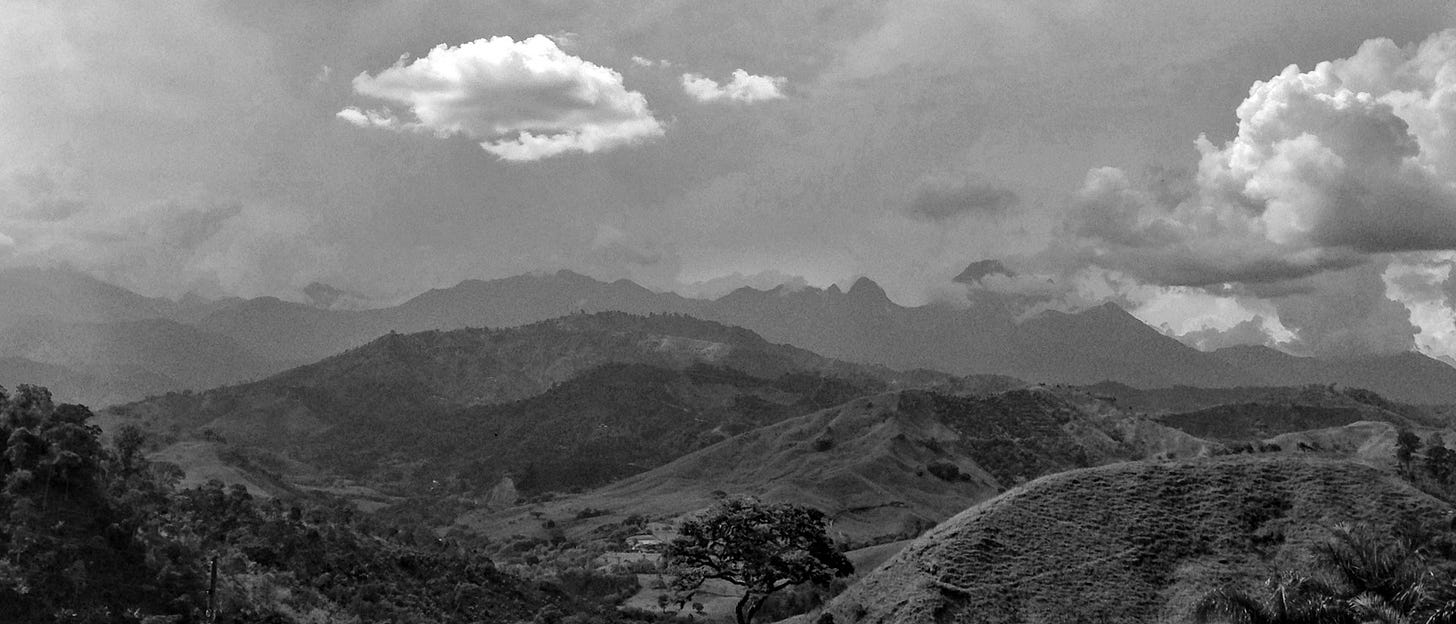Coffee News Roundup: Week Ending July 2nd
This week, a new study shows that COVID-19 is likely to cause "a severe production crisis", there's some blatant corporate coffeewashing, and workers at Pavement Coffee overwhelmingly vote to unionize
Hello and welcome to another Coffee News Roundup, this week brought to you by the overwhelming sense of doom I felt while watching the ocean burn after a gas leak at an offshore oil drilling platform in the Gulf of Mexico yesterday.
If, like me, you’re looking for things you can do in the face of a worsening climate crisis (with the understanding that individual actions won’t solve everything and that the only real way out is to dismantle the global fossil fuel industry) then this is a good article to check out. It’s honest and practical in a way I haven’t seen much of lately.
Anyway, let’s get to the news.
COVID-19 Shocks Likely To Cause ‘Severe Production Crisis,’ Research Finds - Via Daily Coffee News
The global COVID-19 pandemic (which, despite how it sometimes appears living in Michigan, is still ongoing) has had a drastic impact on the coffee industry, causing businesses to close, workers to lose their jobs, and significant supply chain disruptions—and that’s without even touching on the death toll.
According to new research, the pandemic is likely to also cause a “severe production crisis” in the long term as various pandemic-related socio-economic factors impact the work of producers already hampered by a myriad of other issues.
The study, called ‘Epidemics and the future of coffee production’ and published in the journal Proceedings of the National Academy of Sciences, looked at coffee leaf rust (CLR) outbreaks over the past decade and how the additional impacts of the COVID-19 pandemic could hasten another CLR epidemic.
Among the issues directly related to the COVID-19 pandemic are labor shortages caused by stay-at-home orders and border policies, as well as financial losses leading to reduced investment in crop care and sustainability measures, all of which could have a long-term impact on production and increased costs for consumers.
“The spread of COVID-19 and coffee leaf rust both reveal the systemic weaknesses and inequalities of our social and economic systems,” said Kevon Rhiney, an assistant professor in the Department of Geography at Rutgers University which co-produced the research. “There is no ‘magic bullet’ that will simply make this problem disappear. Addressing coffee leaf rust involves more than just getting outbreaks under control; it also involves safeguarding farmers’ livelihoods in order to build resilience to future shocks.”
The paper draws parallels between the current crisis and the 2008 recession, whereby a feedback loop of reduced demand, falling profits, reduced investment in farm management and even farm abandonment, subsequently increased CLR outbreaks and further losses.
Just to end, here’s an excellent quote from the paper:
We can thus only have a healthy coffee system by building up the well-being of the most vulnerable. It is critical to recognize the key roles of labor and healthy functioning ecosystems in producing and sustaining profits. This means challenging the status quo and the current coffee value chains to better recognize the value produced by small-scale producers, while at the same time uplifting essential but under-recognized parts of the production process, such as human health, food security and sustainability.
More Headlines
Colombia Needs 2 More Months To End Delays In Coffee Exports
Ditting USA Bids Farewell As Hemro Group Shifts US Operations
Four-Time Participant Wins Gold At El Salvador Cup Of Excellence
The Week In Coffee Unionizing
Last month came news of a potential unionization at Pavement Coffee in Massachusetts, which surprisingly wasn’t being resisted by the company’s management.
This week, after a card check found 80% of workers in favor, the drive has succeeded and formed the first unionized coffee shop in Massachusetts and one of only a handful across the United States.
“We are unionizing because we are people who deserve rights,” Conor, a member of the union organizing committee, told Liberation News. “All labor deserves rights.”
“There has been such an outpouring of support,” Conor continued, “not just from the community, but there have been people from other shops — whether it be coffee shops or just general cafes or bakeries — who have come to us and said, ‘How do you do this? We need this.'”
The Week In Corporate Coffeewashing
This week we got a corporate responsibility report from Keurig Dr Pepper (KDP), which “highlights the progress the company has made in its quest to drive positive impact across the supply chain” and says it has “achieved two of its long-term supply chain goals.” The first goal was to “engage one million individuals in the supply chain and significantly improve their lives”, while the second was to source 100% of its coffee “responsibly”.
The news report doesn’t say how KDP actually achieved these goals, but if you click through to read the report (it is very long) you will discover that KDP has invested $64 million in “social impact projects” (since 2003) and in 2020 took part in things like hurricane relief. For the second goal, KDP uses a bunch of third-party sustainability programs such as Rainforest Alliance, Fairtrade International etc, to certify its coffee as “responsibly sourced”, while also paying “a corresponding premium above the base commodity price for our coffee purchases”. How much? Who knows, doesn’t say.
For context, Keurig Dr Pepper, which is majority owned by JAB Holding, had revenue of $11.9 billion in 2021. ELEVEN POINT NINE BILLION DOLLARS. But don’t worry, they’ve invested $64 million over 18 years for PR pur—I mean to help the people battling disease and hurricanes in order to scrape a living producing the raw materials that generate said revenue.
Meanwhile, JDE Peet’s, Melitta Group, Nestlé, Strauss Coffee, Supracafé, and Tesco have jointly “shared their progress with sustainability” as part of the Global Coffee Platform (GCP) Snapshot 2019 & 2020 report. According to the report (which, again, very long) 41% of green coffee purchases in 2019 were “in line with GCP-recognized sustainability schemes”—a relative increase of 15% from 2018. 2020’s number was higher still, at 48%.
Is this good? Probably. Is Keurig Dr Pepper’s investment in corporate responsibility good? Probably. It’s better than nothing. However, is it patently obvious that these companies are only doing this stuff because it makes them look good and means they can charge more for their “sustainable” coffee? Yes. Yes it is.
Is Coffee Good For You?
It can help keep your heartbeat regular, which is good.
Atrial fibrillation is the most common form of heart arrhythmia, leading to an estimated 750,000 hospitalizations in the US each year. A new study published in the Journal of the American Heart Associationlooked at health data from 19,000 male participants in a long-term Physician’s Health Study and found that those who consumed between one and three cups of coffee per day had a 15% lower risk of atrial fibrillation than those who drank no coffee at all.
This goes against the previously accepted wisdom (apparently even endorsed by the American Heart Association’s website) that coffee can if not cause then at least influence atrial fibrillation. It’s worth noting that, as is often the case, the study relied on self-reported coffee consumption, and also the decrease in risk was only shown in men—a similar 2010 study found that coffee neither increased nor decreased the risk in women.
What To Read
What Is The Coffee Belt? by Liz Clayton
Until next week, drink good coffee.






